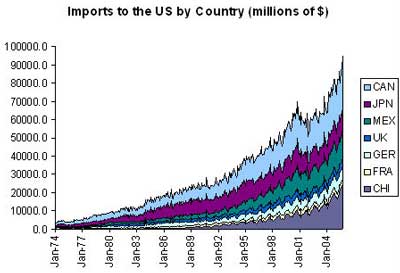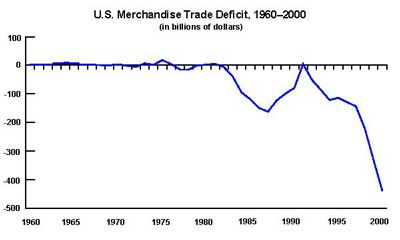
Let’s start again by defining terms. Trade Promotion Authority – commonly called “Fast Track” – is granted by Congress to the President of the United States so the President or White House officials can negotiate trade agreements anywhere in the world and Congress only gets a yes or no vote. That means trade deals can be fast tracked through the legislative process and no matter how good or bad the deals, there are no changes and no amendments, only the pressure of yes or no votes. On June 23, the Senate passed Trade Promotion Authority and the President signed it into law 6 days later. The White house called this version an “upgrade” since it would allow stronger environmental, worker safety and transparency (reducing secrecy) standards.

The Trans-Pacific Partnership is a trade deal now being negotiated among the United States and 11 other nations that border the Pacific Ocean. The new standards would be part of this trade deal.
The proposed Trade in Services Agreement is a deal among the United States, the European Union and 23 other nations that would protect corporations providing international services. From telecommunications and financing to transportation and healthcare, this agreement would mean international services would be protected and could be regulated by corporations and investors rather than nations and their citizens. It’s not clear how the new standards would be modified to fit international services
In a recent article, I raised three concerns about the Trans-Pacific Partnership: excessive secrecy, inadequate standards, and how trade deals allow corporations to dominate national interests. With the new standards in place, not quite two of concerns have been addressed. Excessive secrecy surrounding the deal seems reduced through the new standards. Some worker safety and environmental standards were tackled – though outrage at the U. S. Department of State raising the human rights ranking of Malaysia despite continued evidence of human trafficking and discoveries of mass graves – demonstrates not all worker issues were confronted.
The addition of new resources to provide support and training to American workers who lose jobs as a result of the trade deal at least begins an honest look at how our trade agreements negatively impact our workforce. Other elements begin to address the ways in which trade deals often put American businesses and workers with stronger worker and environmental requirements at a disadvantage in bidding and purchasing activities compared to other nations.

My biggest concern was not addressed. It’s the most hidden and most destructive element of most trade deals. It’s in the wording that allows corporate profits to dominate national and citizen interests – it’s called Investor-State Dispute Resolution.
A clause in the Trans-Pacific Partnership and most other trade agreements allows big corporations to sue any nation if that company believes those nation’s actions will hurt corporate profits. The lawsuit is not heard in regular courtrooms but rather in special tribunals where the final decision cannot be appealed.
In my article, I described examples of corporations dominating national interests around the world:
- Ecuador sued Chevron when oil drilling contaminated parts of the Amazon rainforest. Chevron then used an investment treaty to sue Ecuador claiming compensation for the destruction of the rainforest would not be “fair and equitable treatment.” In this scenario, Ecuador pays for Chevron’s damage to the rainforest!
- Phillip Morris filed a lawsuit against Australia when new laws called for plain packages on cigarettes.
- An oil and gas company filed a lawsuit when the province of Quebec called a moratorium on fracking under the St Lawrence River; and Dow Chemical is suing Quebec for losses due to a ban on certain pesticides.
Now, I find similar examples here in the United States where international corporations press to overwhelm local efforts that serve the needs of our citizens and our communities:
- In July 2014, the people of South Portland, Maine voted in favor of the Clear Skies Ordinance — banning the loading of crude oil onto tankers in Portland harbor in an effort to block the transfer of tar sands oil into Maine. The town was concerned about the risk of spills and the construction of smoke stacks that would pollute the air next to parkland, pump stations that would be built next to an elementary school and the storage of toxic tar sands products near many other schools and neighborhoods. In February 2015, the city was sued in federal court by the pipeline subsidiary of ExxonMobil, which claimed that the Clear Skies Ordinance violated the constitutional since only Congress has authority over inter-state and international treaties. The case is slowly working its way through the system.
- In June 2015, the South Dakota Public Utilities Commission decided to prohibit tribal testimony at hearings that will determine if TransCanada will be certified to run the Keystone XL pipeline through the state. The nine tribal nations of South Dakota all oppose the tar sands pipeline. Along with environmental damage from the extraction and processing of dirty tar sand oil, the tribes – along with a coalition of scientists and researchers – are concerned about the 200-mile pipeline route that crosses three times over the water system that provides drinking water to thousands of residents of western South Dakota. Beyond deafness to community concerns and blindness to environmental damage, South Dakota is willfully violating state and federal treaties by excluding Native American governments from decision-making related to tribal lands. And an arrogant TransCanada does not even have a spill response plan!
- A little more than 1,000 miles to the southwest, Apache and non-native activists are trying to prevent an English-Australian mining company from drilling at Oak Flat, a site sacred to the Apache people from before the state of Arizona and even the United States of America even existed. Both Arizona senators and one Congressman literally gave mining rights and title to the land on Oak Flat to Rio Tinto in a secret deal attached to a Department of Defense spending bill. Even if the Apache tribal government were to appeal to the Organization of American States for justice in the Inter-American Court, which has decided numerous times in favor of Indigenous Peoples in the Americas, our trade agreements and court rulings grant standing and personhood to corporations — not Native American tribes! This one strikes me as most shameful. Congress and the Forest Service conspire to hand over sacred land to a foreign-owned corporation intent on devastating our land and shared culture.
Yes, issues have been addressed and there is hope that trade agreements will now include worker and environmental provisions and resources to level the playing field and raise workplace standards around the world. The Trans-Pacific Partnership and other trade deals are still rotten at the core. The destructive element grants large corporations the ability to file suit against sovereign nations that attempt to put in place or strengthen environmental, safety, healthcare, financial, consumer and other standards to improve the lives of everyday people. This legal maneuvering allows corporations to dominate nations and citizens with potential destructive impact far into the future.
The basic assumptions by in which the American government relates to and trades with international corporations must encourage fair trade and improve our collective wellbeing. Anything less violates the principles of a democracy Of the People.
Now, when I read about trade deals, I wonder: Will international corporations always get the better bargain? Do American citizens have a constitutional right to protect our air, land, water and other environmental and cultural resources? Where is our democracy Of the People?

Leave a Reply